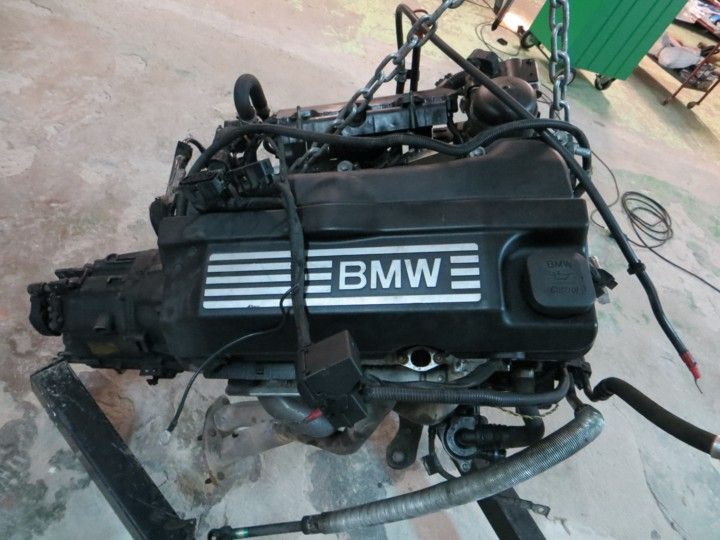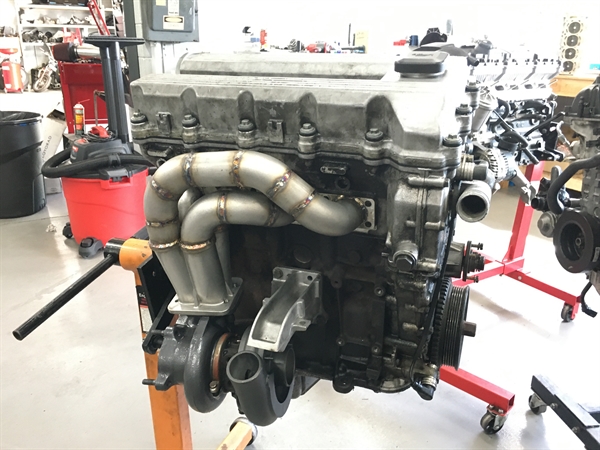Important Considerations for Choosing the Best Engine for Your Needs
In the realm of choosing the excellent engine to fulfill your needs, several important elements need careful factor to consider to make certain optimum performance and performance. From the nuanced equilibrium between power and efficiency to the often-overlooked elements of maintenance and solution demands, each element plays a pivotal duty in identifying the most suitable engine for your details requirements.
Power and Efficiency
When assessing engines for optimal performance, it is essential to focus on both power outcome and effectiveness. Power output determines the capability of an engine to create energy, which directly influences its efficiency. A high power output is important for requiring jobs such as high-speed needs or sturdy applications. It ensures that the engine can take care of the work properly and effectively. However, power alone is not enough; effectiveness plays a substantial role in determining the total efficiency of an engine. Efficiency describes exactly how well the engine converts fuel right into usable energy. A more effective engine will supply much better mileage, lower discharges, and reduced operating prices. Striking the best balance in between power outcome and effectiveness is vital to picking an engine that fulfills your details requirements. When making this choice, it is crucial to consider factors such as the planned usage of the engine, ecological influence, and long-term price implications. By meticulously examining both power and effectiveness, you can choose an engine that provides optimal efficiency and meets your requirements effectively.
Fuel Performance and Economy
Fuel efficiency refers to the engine's capacity to transform fuel into power with marginal waste, directly affecting operating prices and environmental sustainability. Engines with higher gas efficiency not only minimize fuel expenditures yet likewise decrease carbon discharges, adding to a greener procedure.

Compatibility and Application
Considering the gas performance and economic climate of an engine, the next important element to address is its compatibility and application within details operational contexts. Compatibility describes exactly how well the engine integrates with the total system or tools it powers. It entails elements such as physical dimensions, mounting options, electric user interfaces, and control systems. Guaranteeing compatibility is necessary to prevent issues such as overheating, vibrations, or power discrepancies (bmw 318ti).
Different engines are created for certain objectives, whether official site it be industrial equipment, marine vessels, automobiles, or power generators. Understanding the designated application enables for the option of an engine that can supply the necessary power result, torque, and functional features.
Upkeep and Service Needs
Upkeep and service requirements play a vital function in guaranteeing the longevity and ideal performance of an engine. Normal maintenance is vital to prevent failures, prolong the life expectancy of the engine, and preserve its performance. When choosing an engine, it is essential to think about the manufacturer's recommended maintenance timetable and the availability of service centers or qualified specialists.
Aspects such as the frequency of oil modifications, filter substitutes, and general evaluations can considerably impact the engine's performance. Some engines might require more regular servicing based upon their style and usage, while others may have longer periods between maintenance checks. It is vital to stick to these service demands to avoid expensive fixings and unanticipated downtime.

Cost and Budget Considerations
When choosing an engine for a certain application,Budget constraints commonly play a substantial function in the decision-making procedure. When thinking about the expense and budget implications of selecting an engine, it is important to assess not just the preliminary acquisition price however also the long-term expenses related to upkeep, fuel usage, and possible upgrades or repairs. It is vital to strike an equilibrium in between the ahead of time cost of the engine and its total lifecycle prices visit this web-site to guarantee that the chosen engine remains monetarily sustainable throughout its functional life expectancy.
Variables such as gas resilience, reliability, and efficiency can directly impact the total expense of possession of an engine. While a more costly engine may have higher upfront costs, it might potentially result in lower maintenance and fuel costs over time, thus supplying far better worth in the long run.
Final Thought
Gas performance refers to the engine's ability to convert gas right into power with very little waste, directly affecting operating costs and environmental sustainability.Factors affecting gas efficiency consist of engine design, burning effectiveness, and overall performance optimization. Additionally, selecting the appropriate gas type and quality as recommended by the engine supplier can better enhance performance and lengthen engine lifespan.
Engines with good utility functions and conveniently available parts can lower upkeep expenses and minimize the time the engine is out of operation - bmw 318ti. It is important to strike a balance in between the in advance price of the engine and its total lifecycle prices to ensure that the selected engine remains monetarily sustainable throughout its functional life-span